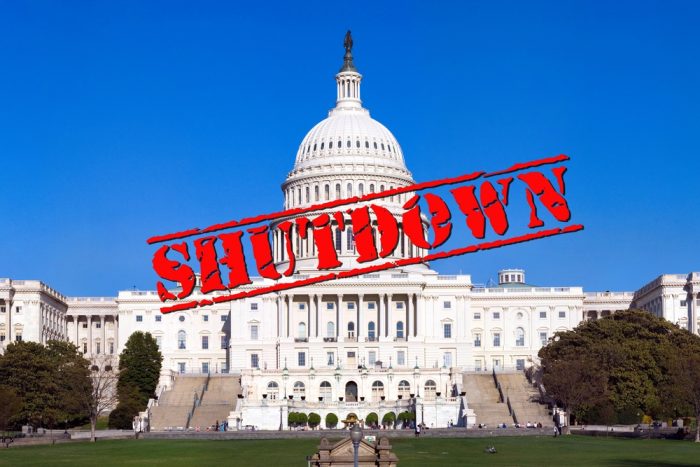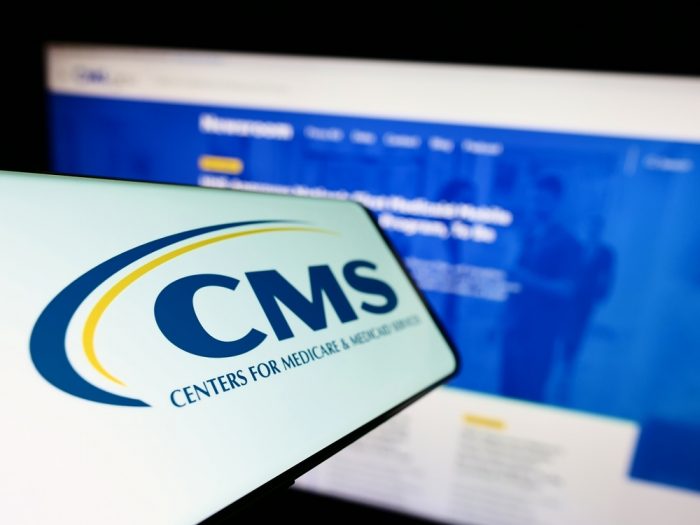ANCOR and RCPA Provide Details on How Federal Government Shutdown Would Affect Human Services Providers
Last week, the US House of Representatives passed a continuing resolution (CR) to keep the government funded through November 21, 2025. However, the CR legislation was not passed in the US Senate, failing with a vote of 44–48. The House and Senate have now adjourned for recess this week without finding a path forward to keep the government funded past September 30, 2025.
Although there are ongoing discussions among Republican and Democratic leaders, the Senate is not currently slated to return to Washington until September 29, and the House may not return until October. If an agreement on funding legislation is not reached by September 30, there will be a government shutdown.
To help prepare for what a government shutdown could mean, we are providing a helpful resource from McDermott+.
Below are key takeaways from how a shutdown could impact human services providers:
- Depending on the length of a shutdown, Medicaid will continue to have sufficient funding and state payments so that providers should not be interrupted. A shutdown that extends beyond the quarter could potentially result in delayed payments to states, although that is unlikely.
- It is likely that a percentage of HHS staff, including CMS, will be furloughed for the length of the shutdown, although the current administration has yet to release new guidance regarding agency procedures. With limited staff, CMS is unlikely to approve state plan amendments and waivers during a government shutdown, although review may occur in the background.
- During a shutdown, the Administration for Community Living has historically continued activities funded through carryover funding.
- SAMHSA has historically continued substance abuse and mental health programs during previous shutdowns, including those that provide critical behavioral health resources in the event of a natural or human-caused disaster, such as disaster behavioral health response teams, the disaster distress helpline that provides crisis counseling to people experiencing emotional distress after a disaster, and the 988 lifeline to connect people in crisis with life-saving resources.
- The current Medicare telehealth flexibilities are extended via statute. However, the statutory provision expires on September 30, and needs to be extended by legislation (not regulation); these flexibilities would end if a government shutdown occurs. Pre-pandemic limitations for Medicare telehealth coverage and payment would return. These include waivers to geographic and originating site restrictions, expansions to the list of eligible practitioners, authorization of telehealth via audio-only telecommunications, use of telehealth for required face-to-face encounters prior to hospice care recertification, and the delayed in-person visit requirement for tele-mental health service.
- A shutdown could impact the regulatory process. For example, if there were pending rulemaking, the Centers for Medicare and Medicaid Services (CMS) staff who work on these rules, along with the Office of Management and Budget (OMB) staff who review the regulations before they are released, could be furloughed in the event of a shutdown.
- In the event of a government shutdown, Medicare and Medicaid payments to states do not immediately stop if the federal government shuts down. Both Medicaid and Medicare are mandatory spending programs, which means their funding is authorized permanently, and is not subject to the annual appropriations process that lapses.
These are all assumptions based on prior history, but shutdown operations under the new Trump administration could look quite different from how they have previously operated.
For additional information on other health care programs, please see this document.
Reminder to Show Your Support for the RCPA Letter Urging an End to the Budget Impasse
IPRC Webinar: The Intersect of Functional Imaging and Clinical Presentation
Christine H. Koterba, PhD, ABPP
Kristen Koskinson, PhD
Aaron McAllister, MS MD
Monday, November 3, 2025
12:00 pm – 1:00 pm EST, 11:00 am – 12:00 pm CST, 10:00 am –11 am MST, 9-10 am PST
Presenter Bios:
Christine H. Koterba, PhD, ABPP, is a Pediatric Neuropsychologist at Nationwide Children’s Hospital and a Clinical Associate Professor of Pediatrics at The Ohio State University. She is the attending inpatient neuropsychologist at NCH and provides neuropsychological consultation and assessment in inpatient and outpatient settings. She is also involved in the pre- and post-doctoral neuropsychological training programs. Her clinical interests include pediatric neuropsychology, acute recovery from brain injury, illnesses (COVID-19, long COVID), and other conditions that impact neurological functioning, and pediatric rehabilitation.
Kristen Hoskinson, PhD, a pediatric neuropsychologist, targets her research aims to improve understanding of the neuroanatomical and functional substrates that contribute to the constellation of cognitive, emotional, and behavioral sequelae of childhood neurologic injury, including pediatric brain tumor, traumatic brain injury, and complex congenital heart disease. She integrates neuroimaging methods with assessed and observable social and emotional functioning to improve early identification of those at elevated risk and at greatest need for intervention. Currently, her funded work focuses on integrating functional MRI and diffusion tensor imaging of white matter integrity, with a particular focus on social cognitive and executive functions networks.
Aaron McAllister, MS MD, is a pediatric neuroradiologist in the Department of Radiology at Nationwide Children’s Hospital, providing world class care to patients. He is trained in general radiology and has completed fellowships in both pediatric radiology and pediatric neuroradiology at Cincinnati Children’s Hospital. He is board certified in both diagnostic radiology and pediatric diagnostic radiology. Dr. McAllister serves as a clinical assistant professor in the Department of Radiology at The Ohio State University College of Medicine, as well as an adjunct assistant professor of Radiology at the School of Medicine at the University of Toledo Medical College.
Objectives
Following this course, participants will:
- Be able to describe two common outcomes following diffuse axonal injury;
- Be able to discuss areas of the brain involved in executive functions; and
- Be able to define basic functions controlled by different areas of the brain.
Audience: This webinar is intended for all interested members of the rehabilitation team.
Level: Beginner–Intermediate
Certificate of Attendance: Certificates of attendance are available for all attendees. No CEs are provided for this course.
Register
Complimentary webinars are a benefit of membership in IPRC/RCPA. Registration fee for non-members is $179. Not a member yet? Consider joining today.
Attendees may wish to review Understanding the Basics of Neuro-imaging and Practical Applications for the Pediatric Rehabilitation Provider (6/8/2023) | IPRC prior to this session.
CMS Issues Policy Clarification on Speech-Language Pathologist Qualifications for Part B Services
On September 23, 2025, the Centers for Medicare and Medicaid Services (CMS) issued a policy clarification related to the qualifications for speech-language pathologists (SLP) when furnishing Part B outpatient therapy services.
These Part B services include speech-language pathology services that:
- Are furnished by SLPs in private practice (SLPPPs) who submit professional claims; and
- Are furnished and billed by providers of outpatient therapy services as defined at 42CFR489.2.
RCPA Drafts Letter to Urge Ending the Budget Impasse, Seeks Support From Members
Webinar on Sept. 24 to Focus on Changes in FY 2026 IRF PPS Final Rule
On September 24, 2025, WellSky will be conducting a webinar on the fiscal year (FY) 2026 inpatient rehabilitation facility prospective payment system (IRF PPS) final rule that was released by the Centers for Medicare and Medicaid Services (CMS) in early August. The webinar will begin at 12:00 pm. There is no cost to participate in this webinar.
Topics will include:
- The key changes in the 2026 IRF Final Rule impacting reimbursement;
- The technical changes and their indirect effects on your program;
- The amendments to the QRP and the appeal process; and
- The latest concerns about potential IRF reimbursement denials.
To participate in the webinar, register here.
Unclear How Much PA Stands to Gain From Feds’ $50 Billion Rural Hospital Program
RCPA & State Partners Send Letter to PA Congressional Delegation, Urge Extension of EPTCs
RCPA, as part of a statewide provider and association coalition, has sent a letter to the PA Congressional Delegation regarding the extension of the Enhanced Premium Tax Credit (EPTC). The coalition urges Congress to move quickly to pass legislation extending EPTCs that make marketplace plans more affordable for people who purchase their own health insurance; these are set to expire at the end of 2025.
If EPTCs are not extended, an estimated 270,000 Pennsylvanians are likely to become uninsured. Pennsylvania taxpayers end up paying for their care in one way or another because uninsured people are often forced to delay or avoid care for treatable conditions. They ultimately end up sicker and require more expensive care in hospitals, which leads to higher, uncompensated care costs for both hospitals and providers. In addition, they acquire medical debt and experience health complications that can jeopardize their employment or employability.
Read the letter here. If you have any questions, please contact RCPA COO Jim Sharp.
CMS Releases Rural Health Transformation Program Fund Application
The Centers for Medicare & Medicaid Services (CMS) released the application and details on how states can apply to receive funding from the $50 billion Rural Health Transformation (RHT) Program created under the recently-passed budget reconciliation bill.
Half of the funding will be evenly distributed to all states with an approved application. The remainder will be awarded to approved states based on individual state metrics and applications that reflect the greatest potential for and scale of impact on the health of rural communities. Applications must come from a state government agency or office and include a letter of endorsement signed by the governor.
There are several key considerations to keep in mind regarding the RHTP:
- Application deadline: States have until November 5 to apply, and this will be a one-time application. CMS will announce approved states by December 31 and begin disbursing funds in 2026.
- Program goals: The RHTP outlines five strategic goals rooted in the statutorily approved uses of funds:
- Make rural America healthy again: Support rural health innovations and new access points to promote preventive health and address root causes of diseases.
- Sustainable access: Help rural providers become long-term access points for care by improving efficiency and sustainability.
- Workforce development: Attract and retain a highly skilled health care workforce by strengthening recruitment and retention of health care providers in rural communities.
- Innovative care: Spark the growth of innovative care models to improve health outcomes, coordinate care, and promote flexible care arrangements.
- Tech innovation: Foster use of innovative technologies that promote efficient care delivery, data security, and access to digital health tools by rural facilities, providers, and patients.
- States will receive and manage funds: Unlike previous federal relief programs, the RHTP does not provide direct payments to rural providers and clinics. Instead, states must apply for and manage the funds, with CMS approval.
- CCBHC-specific considerations: The RHTP specifically directs applying states to provide a current list of Certified Community Behavioral Health Clinic (CCBHC) entities within their state as of September 1, 2025, every active site of care associated with each CCBHC entity, and the address of every active site of care. For applications without this information, CMS will estimate the number of CCBHCs in the state using the most recent list of CCBHCs as maintained by the Substance Abuse and Mental Health Services Administration (SAMHSA), the list of CCBHCs supported through the Section 223 CCBHC Medicaid Demonstration and through SAMHSA-administered CCBHC Expansion (CCBHC-E) Grants, and State-certified CCBHCs listed on state government websites for states that use other Medicaid authority to designate CCBHCs (such as Medicaid State Plan rehabilitation authority). The addresses of these CCBHC sites, as available, will be compared to rural area designations using the current HRSA definition of rurality to determine whether a CCBHC is in a rural area.
CMS has scheduled two webinars for RHT Program applicants as follows:
Friday, September 19, 2025 at 3:00 pm (ET)
Register in advance for this webinar
Thursday, September 25, 2025 at 3:00 pm (ET)
Register in advance for this webinar
The deadline for states to apply is November 5, 2025.
There is only one opportunity to apply for funding and CMS will announce awardees by December 31, 2025. Additional information about the Rural Health Transformation Program is available on the program’s web page as well ANCOR’s Medicaid Resource Center.
As a reminder, the RHTP funding is not limited to hospitals or any specific provider types, and may also be used by states to support their community-based disability programs.
In preparation for Pennsylvania’s submission for the RHT initiative, the Department of Human Services (DHS) elicited public comment and feedback as it related to the State’s ongoing strategic implementation of the 2025–2030 Rural Health Plan and the grant application. The plan was developed with input from rural community leaders, health professionals, academic institutions, and policymakers to identify key priority and action steps to address the unique health challenges and opportunities in Pennsylvania’s 48 rural counties. Primary focuses include access to care, behavioral health, oral health, maternal health, workforce development, broadband connectivity, and health equity.
RCPA submitted member comments to DHS in accordance with the request that ensures equity and provider involvement in the ongoing implementation of the plan as well as the utilization of the RHT in Pennsylvania, including the expansion of integrated health ICWC and CCBHC programs, and development of opioid treatment program medication units, which Pennsylvania currently prohibits. The 2025–2030 Pennsylvania Rural Health Plan can be found here.

















